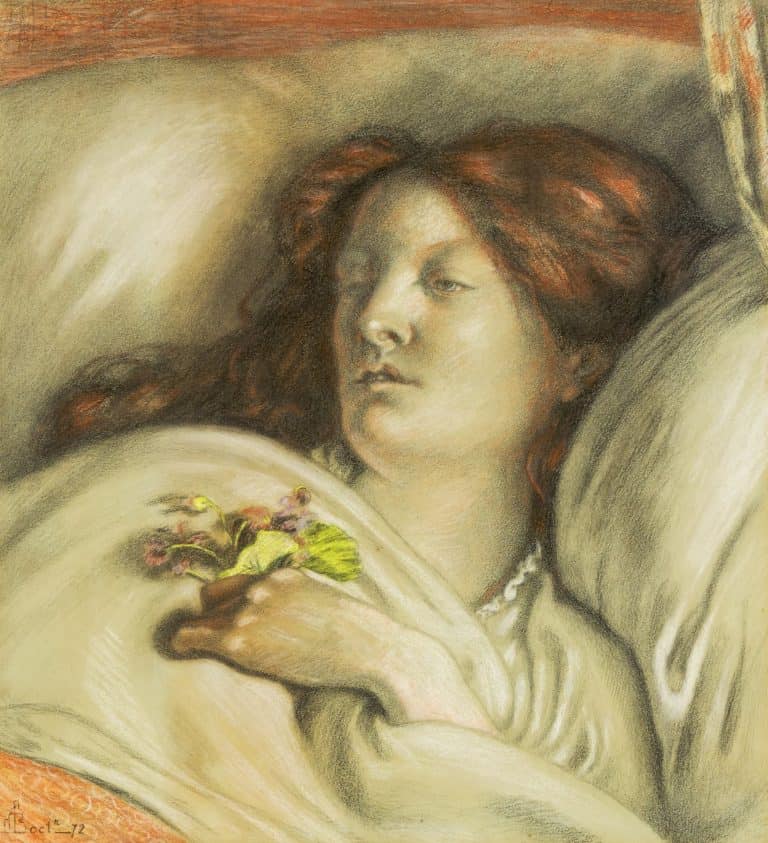What Are OCD Triggers And How To Deal With Them
Medically Reviewed By – Juliet Gustafson, LMSW

Triggers in Obsessive – Compulsive Disorder are common. Triggers can be compared to turbulence in an airplane, it may be uncomfortable but it’s not dangerous.
Newton’s Third Law states that “For every action there is an equal and opposite reaction”. Now in regards to OCD, we know what the “action” is (intrusive thoughts forced by the brain).
Furthermore, “the opposite reaction” is also known to be compulsive actions or behaviours. But, what causes all of this to begin with? What “triggered” this cycle and why?
The OCD cycle has been well known for decades by now. Since its first ever public documentation in 1691, Obsessive – Compulsive triggers have been studied for centuries by now.
This post is all about Obsessive – Compulsive Triggers.

🎁 Special Offer: 🎁 When you use our affiliate link, you’ll receive an exclusive 20% discount on Online-Therapy.com services!
Don’t miss this opportunity to invest in yourself and unlock your full potential. Start your journey to mental wellness today!
Say yes to a brighter, happier future with Online-Therapy.com!
20% discount on Online-Therapy.com services
Are you ready to take control of your mental well-being and embark on a journey towards a happier, healthier you? Look no further than Online-Therapy.com!
Experience a transformation in your mental health with the following benefits:
- Convenient & Confidential: Online-Therapy.com provides a safe and private platform for therapy sessions. Say goodbye to the stress of in-person appointments.
- Comprehensive Resources: Access a treasure trove of therapeutic resources, including worksheets, journals, and interactive tools, all designed to help you grow and heal.
- Certified Professionals: Connect with experienced and licensed therapists who are dedicated to your progress and well-being.
- Tailored Approach: Online-Therapy.com offers personalized plans designed to suit your specific needs, ensuring you receive the support you deserve.
What Is an OCD Trigger?
Triggers and OCD go hand in hand. A trigger “is something that causes a particular feeling or memory”. Oh boy, do we have triggers. The sheer nature of triggers is that they influence the type and severity of OCD symptoms.
For example, being in a car crash may lead someone to develop harm OCD. For example, they may develop a fear of hurting someone while they are driving. They may have mental images of running people over while driving.
Take control of your life and download our FREE OCD Worksheets now!
An OCD trigger may consist of people, places, songs, names etc… Basically anything that can generate the obsessive compulsive cycle. That is, obsessions provoke anxiety and negative emotions followed by actions and behaviors performed to oppose these emotions called compulsions.
This is not written in stone however. The process of developing a certain type of OCD does not rely solely on past experiences or “triggers”. It’s a complicated formula that scientists are still not sure about. Yes, triggers do influence OCD in a big way but other elements such as biological, social and genetic factors also play a role.
Types of OCD triggers

Contamination
Contamination obsessions often revolve around the fear of contracting an illness or causing harm to oneself or others through contact with perceived contaminants.
Common triggers include touching doorknobs, shaking hands, using public restrooms, or being in crowded places. Compulsions may involve excessive hand-washing, avoiding certain locations or objects, or using protective barriers like gloves or tissues.
Symmetry and Orderliness
Individuals with symmetry and orderliness obsessions may feel extreme discomfort or anxiety when things are not arranged or organized in a specific way. Common triggers include misaligned objects, uneven numbers of items, or items being out of place.
Compulsions may involve repeatedly arranging or aligning objects until a sense of balance is achieved or feeling compelled to redo tasks until they feel “just right.”
Forbidden or Taboo Thoughts
This type of OCD involves intrusive thoughts or mental images that are morally or socially unacceptable, leading to distress and anxiety.
Triggers can include violent or sexual thoughts, thoughts of causing harm to oneself or others, or thoughts that go against personal or religious values.
Compulsions may involve mental rituals, such as praying or repeating specific phrases, or physical rituals aimed at neutralizing or counteracting the intrusive thoughts.
Checking
Checking obsessions typically involve the fear of harm or negative consequences resulting from not checking or verifying something. Common triggers include concerns about locked doors, appliances being turned off, or potential accidents.
Compulsions may manifest as repeatedly checking locks, switches, or other items, sometimes to the point of interfering with daily life and causing significant distress.
Hoarding
Hoarding is characterized by the difficulty of parting with possessions, regardless of their actual value. Triggers for hoarding obsessions can include the fear of needing an item in the future, sentimental attachments, or the belief that objects have inherent significance.
Compulsions involve excessive acquiring, difficulty discarding items, and excessive clutter that may impair living spaces.
Moral or Religious Obsessions
Moral or religious obsessions involve persistent fears of committing moral or religious transgressions, leading to distress and anxiety. Triggers may include thoughts or doubts about breaking religious rules, engaging in immoral behavior, or not living up to personal or religious standards.
Compulsions may include excessive praying, seeking reassurance from religious figures, or engaging in rituals to seek forgiveness or avoid punishment.
Health Anxiety
Health anxiety, also known as illness anxiety disorder or hypochondriasis, involves excessive worry about having a serious medical condition. Triggers can include bodily sensations, news or media coverage about diseases or outbreaks, or encounters with sick individuals.
Compulsions may include repeatedly checking the body for symptoms, seeking medical reassurance, or avoiding situations perceived as risky for health.
Relationship Obsessions
Relationship obsessions often involve intrusive thoughts or doubts about the quality, compatibility, or fidelity of one’s relationships. Triggers can include normal relationship challenges, interactions with others, or perceived signs of conflict or distance.
Compulsions may involve seeking constant reassurance, analyzing conversations or behaviors, or engaging in behaviors aimed at preventing harm or maintaining the relationship.
Just-Right Obsessions
Just-right obsessions involve an intense need for things to feel or be “just right” or in perfect alignment. Triggers can include sensations of discomfort or incompleteness when things are not in a specific order or configuration. Compulsions may involve repetitive actions, such as tapping, touching, or arranging objects, until a sense of subjective completeness or satisfaction is achieved.
Sensitivity to Symmetry or Numbers
Some individuals with OCD have a heightened sensitivity to symmetry or specific numerical patterns. Triggers can include asymmetrical objects or numbers that are not divisible or arranged in a preferred way. Compulsions may involve rearranging objects, performing actions a specific number of times, or avoiding numbers or objects that cause discomfort.
It’s important to remember that triggers can be highly individualized, and individuals with OCD may experience a combination of these triggers or unique variations specific to their condition. Understanding one’s specific triggers can be helpful in developing effective coping strategies and seeking appropriate treatment.
Related Articles – Health Obsessive Compulsive Disorder (Health OCD)
What is OCD?
People with obsessive-compulsive disorder (OCD), a mental illness, experience an unending loop of obsessions and compulsions.
The undesired, undesirable ideas and/or thoughts that cause trauma and stress are known as obsessions.
Compulsions are behaviors (physical or mental) that are repeatedly practiced in an effort to relieve the tension brought on by obsessions.
These Compulsions, alleviate anxiety and discomfort momentarily, however, they do not provide long term relief. This is why people with OCD feel like they must complete their compulsions frequently.
Related Article(s) – Alcohol Makes OCD Worse: Is There Really a Connection?
What Events Could trigger OCD?
Events or experiences that can potentially trigger or exacerbate OCD symptoms vary from person to person.
While it is important to note that not everyone with OCD will experience triggers or have identifiable triggering events, here are some examples of events that could potentially contribute to the onset or worsening of OCD symptoms:
Stressful Life Events
Major life transitions, such as starting a new job, moving to a new place, going through a divorce or breakup, experiencing financial difficulties, or the loss of a loved one, can lead to increased stress and trigger or amplify OCD symptoms.
The disruption and emotional strain associated with these events can heighten anxiety levels, making individuals more vulnerable to OCD symptoms.
Traumatic Experiences
Trauma, whether it’s a single incident or ongoing trauma, can trigger OCD symptoms in some individuals. Traumatic events such as physical or sexual abuse, accidents, natural disasters, or witnessing violence can lead to the development or worsening of OCD.
Illness or Medical Conditions
Certain medical conditions or illnesses can trigger or exacerbate OCD symptoms. For example, streptococcal infections have been linked to a condition called Pediatric Autoimmune Neuropsychiatric Disorders Associated with Streptococcal Infections (PANDAS), where OCD symptoms emerge or worsen following an infection.
Other neurological conditions, such as encephalitis or traumatic brain injury, may also contribute to the development or exacerbation of OCD symptoms.
Substance Abuse or Withdrawal
Substance abuse or withdrawal from drugs or alcohol can impact brain chemistry and contribute to the manifestation or intensification of OCD symptoms. Substance abuse can exacerbate anxiety and lead to intrusive thoughts or compulsive behaviors.
Hormonal Changes
Hormonal fluctuations, such as those occurring during puberty, pregnancy, postpartum, or menopause, can influence the onset or severity of OCD symptoms. Changes in hormone levels can affect neurotransmitter activity and contribute to an increase in obsessions and compulsions.
High Levels of Responsibility
Taking on significant responsibilities or facing high-pressure situations, such as academic or work-related demands, can trigger or exacerbate OCD symptoms. The fear of making mistakes or the need for perfectionism in these situations can contribute to obsessions and compulsions.
Media Exposure
Exposure to distressing or triggering content in the media, such as news reports of violence, accidents, or disasters, can affect individuals with OCD. The content may fuel obsessions related to harm, contamination, or moral concerns, leading to increased anxiety and ritualistic behaviors.
Previous OCD Episodes
Experiencing previous episodes of OCD can create a pattern where subsequent episodes are triggered more easily. Once someone has had OCD symptoms, their brain may become more susceptible to triggers, and subsequent stressful events or experiences can reignite or intensify the symptoms.
It’s important to remember that triggers are highly individual, and what triggers one person’s OCD symptoms may not affect another person in the same way. Identifying and understanding personal triggers can be helpful for individuals with OCD to develop effective coping strategies and seek appropriate treatment.
Obsessions Defer Due To Different OCD Triggers
It has been proven that obsessions change drastically depending on triggers. Symptoms and severity of obsessions are also dependent on the type of “triggers” an individual experiences.
Stressful events may occur before OCD manifests itself, and this psychiatric condition is known to be stress sensitive since symptoms worsen when under stress.
Several studies link environmental effects, such as significant life events and traumatic experiences, to the disease’s beginning even though genetic factors play a significant part in the etiology of the condition.
This is also true for OCD because it is known that stressful situations may occur before the beginning of OCD and that OCD symptoms worsen under stressful circumstances.
Seeking Help? – Check out our Help page consisting of highly reliable organizations from 8 countries and counting!
These findings are intriguing because they support a study that found a correlation between the severity of OCD symptoms and prior traumatic experiences.
Additionally, according to our findings, there is a strong correlation between perceived stress and the severity of obsessive symptoms but not compulsions.
In fact, compulsive behaviors are frequently seen as stress-relieving whereas obsessions are seen to be extremely stressful and anxiety centered.
It should be noted that this result is consistent with earlier research that indicates OCD sufferers experience much higher stress from everyday situations and that there is a significant association between distress tolerance and obsessions.
Obsessive Compulsive Triggers due to Gender
Gender is a relevant factor that should be taken into account when evaluating OCD patients.
Numerous studies have shown that Men are more likely than women to experience the onset of OCD in their mid-teens, even though it can happen at any time, including in childhood. This suggests, that men and women may be more susceptible to various triggers.
For instance, genetic influences and the existence of other Comorbid diseases like Tourette syndrome and autism spectrum disorder may have a greater impact on male start of OCD than female onset. When a stressful life event affects men, it is generally tied to a job change or a move (away from home).
Take The OCD Y-BOCS Test to determine the severity of your symptoms.
On the other hand, life events like pregnancy, or childbirth may affect the emergence of OCD in women.
OCD may be more prevalent in males in childhood, but in adolescence and maturity, it is more prevalent in females. Males frequently report earlier onset ages and blasphemous thought-related symptoms.
Moreover, females frequently report that symptoms begin during or after puberty or pregnancy and manifest with contamination- and/or aggressive-obsession-related symptoms. Females also frequently report much higher levels of anxiety and despair.
How to Manage OCD Triggers
Thankfully, there are ways to cope with triggers in a healthy way. Triggers are tricky as they will increase stress and anxiety levels, leaving patients with nothing but compulsive actions to ease the pain. However, this will only reinforce OCD’s control over you and potentially increase the severity of obsessions.
Fortunately, Psychologists came up with techniques to help patients deal with their triggers.
Related Article(s) – What are the Similarities and Differences between OCD and Autism?
Becoming Knowledgeable Of OCD
Yes, OCD triggers may occur randomly but they tend to follow specific themes. By knowing and analyzing what or when your OCD gets “triggered” will help you anticipate and better deal with them.
It is up to you how you analyze your triggers, either by jotting them down in your journal or by remembering them mentally.
Fear Is Not Real In Regards To OCD
Once you know that what you fear is imaginary, it becomes easier to embrace and hopefully defeat it. Once you begin to hold your ground against obsessions rather than running away, you begin to have control over it. The more you run away, the worse OCD will get.
It is challenging at first and it’s not supposed to be easy. However, when you get past the pain and hold firm, OCD will gradually decrease.
It Is Your Responsibility To Educate Yourself On OCD

The power of knowledge. A problem can be managed better the more you are aware of and comprehend it. Learn more about OCD, its symptoms, and the causes of your own obsessions and compulsions.
Listen to podcasts that cover OCD and mental health in general. It’s also advised to read literature to better comprehend your situation. You will find that you are able to manage symptoms much better than previously if you try to become familiar with OCD.
Related Article(s) – OCD and Comorbid Disorders
OCD Treatment Methods
There are several effective treatment methods for Obsessive-Compulsive Disorder (OCD).The most commonly recommended approaches include:
Cognitive-Behavioral Therapy (CBT)
CBT is considered the gold standard treatment for OCD. It involves working with a therapist to identify and challenge the distorted thoughts and beliefs that drive obsessive thinking and compulsive behaviors.
CBT for OCD often incorporates Exposure and Response Prevention (ERP), where individuals gradually face their fears (exposure) and resist engaging in the accompanying compulsions (response prevention). This process helps to reduce anxiety and weaken the connection between obsessions and compulsions.
Medication
Selective Serotonin Reuptake Inhibitors (SSRIs) are frequently prescribed to help manage OCD symptoms. SSRIs, a type of antidepressant, can be effective in reducing the frequency and intensity of obsessions and compulsions.
Commonly prescribed SSRIs for OCD include fluoxetine, fluvoxamine, sertraline, and escitalopram. Medication should be prescribed and monitored by a psychiatrist or a healthcare professional.
Acceptance and Commitment Therapy (ACT)
ACT is a type of therapy that focuses on accepting unwanted thoughts and feelings while committing to actions aligned with one’s values.
It helps individuals develop psychological flexibility and adapt to the presence of obsessions and compulsions without getting entangled in them.
ACT can be particularly useful for individuals who struggle with excessive attempts to control or eliminate their OCD symptoms.
Mindfulness-Based Therapies
Mindfulness-based therapies, such as Mindfulness-Based Stress Reduction (MBSR) or Mindfulness-Based Cognitive Therapy (MBCT), can help individuals with OCD increase awareness of their thoughts and emotions without judgment.
Mindfulness practices promote acceptance and allow individuals to observe their OCD symptoms without getting caught up in them. This can reduce the distress associated with obsessions and compulsions.
Support Groups
Participating in support groups, either in-person or online, can provide valuable support and a sense of community for individuals with OCD.
Sharing experiences, hearing from others who can relate to the challenges of living with OCD, and learning coping strategies from those who have faced similar obstacles can be beneficial.
Family Therapy
Involving family members in therapy can be helpful, especially if OCD symptoms significantly impact family dynamics or relationships. Family therapy can improve understanding of OCD, enhance communication, and provide support for both the individual with OCD and their loved ones.
It’s important to note that treatment for OCD is highly individualized, and a combination of approaches may be necessary to achieve the best outcomes.
A mental health professional, such as a psychologist or psychiatrist specializing in OCD, can provide a comprehensive assessment and guide the selection of appropriate treatment methods based on the individual’s needs and preferences.

🎁 Special Offer: 🎁 When you use our affiliate link, you’ll receive an exclusive 20% discount on Online-Therapy.com services!
Don’t miss this opportunity to invest in yourself and unlock your full potential. Start your journey to mental wellness today!
Say yes to a brighter, happier future with Online-Therapy.com!
20% discount on Online-Therapy.com services
Are you ready to take control of your mental well-being and embark on a journey towards a happier, healthier you? Look no further than Online-Therapy.com!
Experience a transformation in your mental health with the following benefits:
- Convenient & Confidential: Online-Therapy.com provides a safe and private platform for therapy sessions. Say goodbye to the stress of in-person appointments.
- Comprehensive Resources: Access a treasure trove of therapeutic resources, including worksheets, journals, and interactive tools, all designed to help you grow and heal.
- Certified Professionals: Connect with experienced and licensed therapists who are dedicated to your progress and well-being.
- Tailored Approach: Online-Therapy.com offers personalized plans designed to suit your specific needs, ensuring you receive the support you deserve.
Conclusion
In conclusion, OCD triggers are specific stimuli, events, or experiences that can provoke obsessions and compulsions in individuals with Obsessive-Compulsive Disorder. These triggers vary from person to person but often involve themes such as contamination, symmetry, forbidden thoughts, checking, and more. Recognizing and understanding one’s personal triggers is an essential step in managing OCD symptoms effectively.
Dealing with OCD triggers involves a multi-faceted approach that combines therapeutic techniques and coping strategies. Cognitive-Behavioral Therapy (CBT), particularly Exposure and Response Prevention (ERP), is the most widely recommended treatment method. ERP helps individuals confront their triggers and resist the associated compulsions, gradually reducing anxiety and breaking the cycle of obsessions and compulsions.
Other strategies for managing OCD triggers include mindfulness and acceptance techniques, relaxation and stress management strategies, developing coping mechanisms, seeking social support, and maintaining a healthy lifestyle. It is important to remember that managing OCD triggers is a continuous process that requires patience, practice, and professional guidance.
If you or someone you know is struggling with OCD, it is crucial to consult with a qualified mental health professional who specializes in OCD treatment. With the right support and interventions, individuals with OCD can learn to manage their triggers, reduce the impact of obsessions and compulsions, and improve their overall well-being and quality of life.
This post was all about Triggers In Obsessive – Compulsive Disorder


